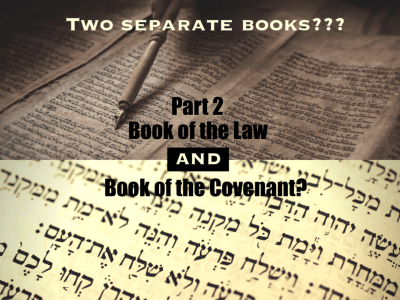Decoding Hebrews – Chapter 2
Book of Hebrews – Chapter 2
Is Jesus an Angel?
Unstoppable Hope: The Voice You Forgot, The Rescue You Still Need
Have you ever felt like you were just drifting? Not necessarily sinking, not crashing—but slowly, quietly, subtly… losing your way?
 You’re not alone. That sensation—that uneasy sense of disconnect—is something the early Jewish believers deeply understood. And Hebrews chapter 2 addresses it head-on, like a lighthouse in a foggy sea. But this isn’t your typical Sunday school walk-through. We’re diving into the text not only from a theological lens, but from the original Jewish perspective that shaped its message—and still shapes our faith if we let it.
You’re not alone. That sensation—that uneasy sense of disconnect—is something the early Jewish believers deeply understood. And Hebrews chapter 2 addresses it head-on, like a lighthouse in a foggy sea. But this isn’t your typical Sunday school walk-through. We’re diving into the text not only from a theological lens, but from the original Jewish perspective that shaped its message—and still shapes our faith if we let it.
Don’t Miss Your Rescue
“Therefore, we must give more earnest heed to the things we have heard, lest we drift away.” (Hebrews 2:1)
The message opens with urgency. “Give more earnest heed.” Why? Because drifting doesn’t look dangerous—until you realize how far you’ve gone.
The author (possibly Barnabas or someone in Paul’s circle) isn’t offering a gentle reminder. He’s sending a flare. And it builds on the crescendo from Hebrews 1, which glorifies Christ not just as a messenger, but as God’s final Word, far above angels, Moses, or any mediator before Him.
What follows is a powerful Jewish apologetic for Yeshua (Jesus) as the promised Messiah—and a sober warning: If we ignore Him, there is no Plan B.
The Torah Was Delivered by Angels—But Yeshua Wrote It
In verse 2, we hear something strange to modern ears: “If the word spoken through angels proved steadfast…“
Wait—angels gave the Torah?
Yes. According to Deuteronomy 33:2 (and its Greek translation in the Septuagint), God gave the Law through angelic mediation. And first-century Jewish belief held angels in extremely high regard—not just as messengers, but as sacred emissaries. Josephus, a leading Jewish historian, echoed this belief when he wrote that the Jews had received their most holy doctrines from angels.
So, here’s the argument the author is building: If the message from angels carried severe consequences for disobedience… how much greater the accountability when the message comes from the very One who made the angels?
The Torah: Firm, Unalterable, but Incomplete
The Greek word used for “steadfast” in Hebrews 2:2 is bebaios, meaning firm, reliable, binding… unalterable. This describes the Torah, God’s law. Contrary to popular misconception, the New Testament doesn’t pit grace against the law. As scholar F.F. Bruce wrote, Hebrews presents the law as “an anticipatory sketch” of Christ’s redemptive work. It’s a black-and-white outline waiting for the color of grace.
Yeshua didn’t come to erase the sketch—He came to fill it in.
He came to fulfill it. That’s why He said, “I didn’t come to destroy the Law but to fulfill it” (Matthew 5:17). To misunderstand that is to misunderstand the entire message of Hebrews.
So Why Do We Drift?
Because we stop listening to the Voice that called us out of darkness. Like Adam in the Garden, we hide behind our guilt and shame, and God asks again, “Where are you?”
But God’s voice hasn’t changed. His salvation hasn’t wavered. We’ve just stopped listening.
The ancient Jews fasted twice a week. Why? To silence the noise of their flesh and tune into the divine frequency. Today, we binge podcasts, scroll endlessly, and squeeze in five minutes of prayer—then wonder why we feel disconnected.
If you want breakthrough, start with the basics: Silence the noise. Fast. Pray. Listen.
The Law Brought Consequences. The Gospel Brings a Captain.
In verses 5–9, the author switches from theology to divine strategy. He quotes Psalm 8 and explains that though humanity was made “a little lower than the angels,” God gave us dominion—and even more so in Yeshua, who “tasted death for everyone.”
Why was He made lower than angels? So He could suffer like us, die like us—and then raise us up with Him. He is the Captain of our salvation, the One who was made “perfect through suffering” (v.10). He walked our road to blaze a trail home.
Prayer or Pain—Which Will You Choose?
Here’s the hard truth: God perfects His people. But the refining happens through two means—prayer or pain. If you’re not praying, suffering may be the only way God can get your attention.
Let that sink in.
And let it spur you into communion. If you’re talking to God less than 15 minutes a day, how can you expect to walk in power, in clarity, in freedom? It’s not about religion—it’s about relationship. If you’ve drifted, now is the moment to turn. You’re not too far gone. The Voice still calls. The Word still stands. The Captain still leads. But you must listen. And you must follow.
So, here’s the call to action:
- Get quiet. Fast something. Silence other voices.
- Get into the Word. Not for emotional insight, but for God’s original intent.
- Pray. Not just for requests, but for connection.
- Obey. Don’t wait for peace to obey—obedience brings peace.
So don’t drift. Lean in. Your rescue has come.
Hebrews 2:12 – “Church” vs. “Assembly” Debate
Let’s critique the KJV translation of Hebrews 2:12, where “church” is used instead of “assembly.” Pastor Jim argues that using “church”:
- Implies a divide between Jews and Gentiles.
- Supports replacement theology, which asserts the Church has replaced Israel in God’s plan.
 The original quote in Psalm 22:22 uses the Hebrew word “kahal” (קָהָל), often translated as “assembly” or “congregation”—and historically referring to Israel, not a Christian church concept.
The original quote in Psalm 22:22 uses the Hebrew word “kahal” (קָהָל), often translated as “assembly” or “congregation”—and historically referring to Israel, not a Christian church concept.
The theological concern here is valid—translations can shape theology. “Church” in English often evokes institutional Christianity, whereas “assembly” is more inclusive of Israel and Gentiles grafted in. Many modern translations use “assembly” or “congregation” for that reason.
Ephesians 2 and the Commonwealth of Israel
Drawing from Ephesians 2 emphasizes that Gentiles are:
- Grafted into Israel
- No longer foreigners but fellow citizens
- Participants in the New Covenant—which was made with the house of Israel and Judah (Jeremiah 31:31)
This is a strong point and consistent with Romans 11, where Paul discusses the grafting in of Gentile believers. Pastor Jim challenges the idea of Gentile Christians being “separate” from Israel, emphasizing a unified identity in Messiah—what some call “One New Man” theology (Ephesians 2:15).
The Nature of Jesus/Yeshua – Man, Angel, or God?
The message defends Yeshua’s divine origin:
- He’s not just a man (which would limit His atonement to one generation).
- He’s not an angel (as Hebrews declares Him greater than angels).
- Therefore, He must be from God, or God in the flesh.
Using Philippians 2:5–11, we unpack how Yeshua emptied Himself, took human form, and humbled Himself to death, followed by exaltation.
This passage is a theological anchor for the doctrine of Incarnation and Kenosis (self-emptying). The speaker’s analogy using the ocean, waves, and mist helps explain the unity and distinction within the Godhead, akin to some Messianic and Trinitarian models.
The Name Above All Names

Here, it is introduced as a Hebraic linguistic insight:
- The “name above all names” in Philippians 2:9 may not be “Yeshua” (a common name), but Yahweh.
- The passage quotes Isaiah 45:23, where Yahweh says every knee will bow to Him.
- Thus, the exalted Yeshua shares the divine name—meaning, He shares in God’s authority and identity.
This is a profound observation rooted in Second Temple Jewish theology, where names represent authority and nature. It aligns with John 17:11 where Yeshua says, “Holy Father, protect them by the power of your name, the name you gave me.”
The “Brain” Analogy of God’s Nature
Let’s compare:
- Left brain = The Father (law, creation)
- Right brain = Yeshua (grace, revelation)
- Corpus callosum (connector) = The Holy Spirit (communicator)
The takeaway is: Just as the brain is one, with different expressions, so too is God “echad” (one)—a unity, not a singularity.
While analogies can break down, this is a unique and memorable way to explain the unity within diversity in God’s nature, especially for those struggling to reconcile monotheism with the deity of Christ.
Encouragement and Exhortation
Meditate on:
- Depending on the Holy Spirit to stay connected to the Messiah.
- Urge those who feel distant or tempted to recognize Yeshua’s humanity—that He knows our struggles.
- Highlighting that suffering draws us to Christ.
Connecting rich theology with real-life application which reinforces that without spiritual empowerment; knowledge alone leads to disconnection.
Key Takeaways:
| Theme | Message |
| Church vs. Israel | Gentile believers are grafted into Israel, not separate. |
| New Covenant | Made with Israel and Judah, not “Gentiles.” |
| Jesus/Yeshua’s Nature | More than man or angel—He is God manifest. |
| Name Above All Names | Refers to Yahweh’s name, shared with the Son. |
| Unity of God | God is one—like a brain with different parts but one being. |
| Role of the Holy Spirit | Essential for connection, understanding, and overcoming. |
Watch the full teaching here:
https://passionfortruth.com/media-item/book-of-hebrews-chapter-2/

Full transcript download:











